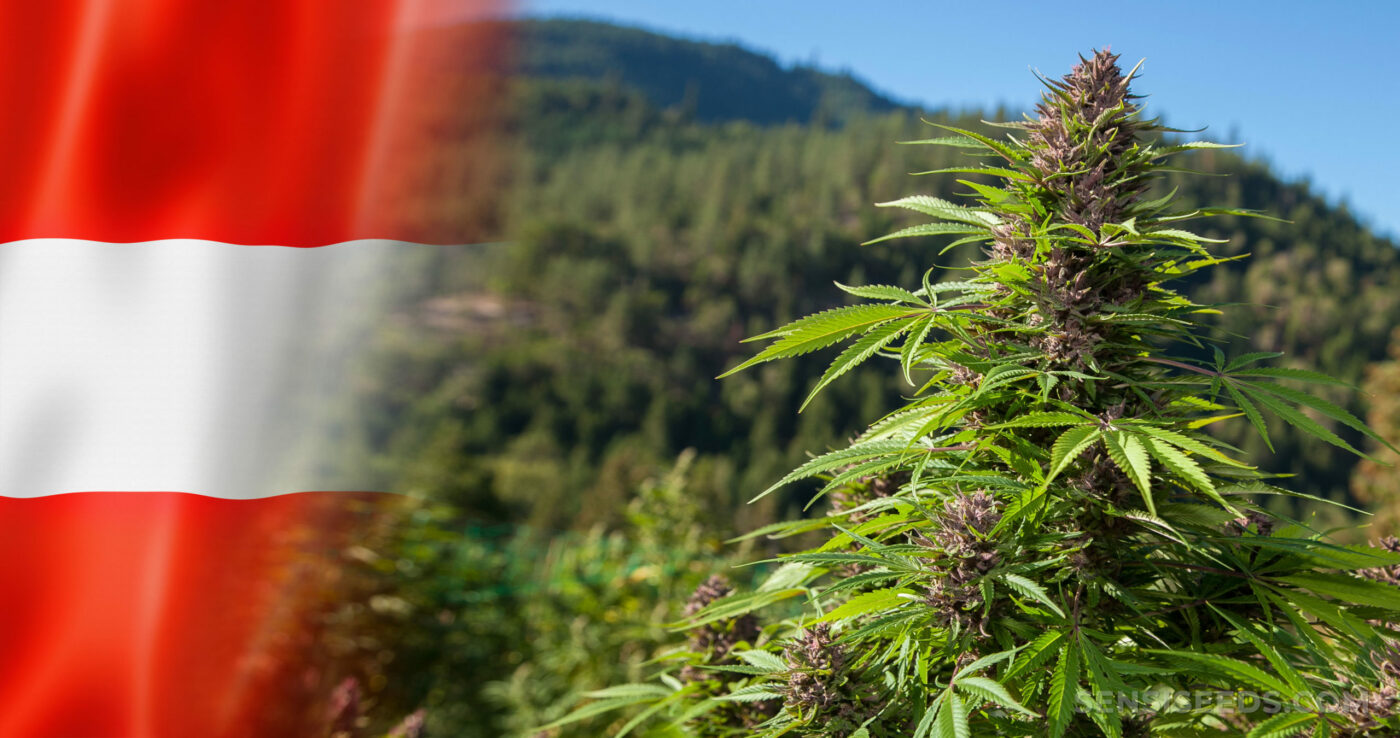Austria Sets Import Record for Medical Cannabis While Legal Challenges Loom
Austria finds itself amidst a notable surge in medical cannabis consumption, yet potential constitutional shifts may be approaching.
Current State of Cannabis in Austria
In the European DACH alliance—comprising Germany, Switzerland, and Austria—Austria stands as the third country but lacks legislative pathways for recreational cannabis.
Despite the progressive discussions in the EU led by its neighboring DACH partners, Austria’s cannabis reform remains absent.
However, the consumption of dronabinol has notably risen year after year, although entirely reliant on imports as Austria doesn’t produce it domestically.
The Austrian Agency for Food and Health (AGES) annually cultivates several hundred kilos of medical cannabis flower, primarily exported, predominantly to Germany, for conversion into dronabinol and subsequent re-importation.
While Austria’s medical cannabis market trails behind Germany’s, limited cultivation and lack of extraction pose challenges.
Patients face hurdles in securing insurance reimbursements, mirroring the situation in Germany where legal actions serve as the swiftest but congested resolution method.
Potential Legal Shifts in Austria
Efforts to bypass existing hurdles and push for recreational legalization are underway in Austria, potentially through legal challenges rather than legislative means.
Cannabis Laws in Austria: Current Landscape and Future Prospects
Constitutional Challenge in Progress
A pivotal case at Austria’s Constitutional Court involves a petition by Paul Burger, a 26-year-old from Vienna, challenging the country’s Narcotics Drugs Act after being caught with a half-burned joint in 2020.
Burger, backed by renowned civil rights advocate Dr. Helmut Graupner, stands a strong chance, much like his successful challenge against Austria’s same-sex marriage ban.
The Constitutional Court’s assessment focuses on the Act’s constitutionality, echoing arguments made in the Mexican Supreme Court.
The crux lies in advocating for the right to privacy and self-determination in personal consumption, similar to the rationale behind Austria’s recent legalization of assisted suicide.
Austria’s Role in European Legalization
The debate over personal access and cultivation’s constitutionality resonates in Europe, albeit not as directly as in North America.
Notably, Albert Tio’s Spanish case addressing club-specific access was dismissed by the European Court of Human Rights last year.
Germany’s previous legal challenges shifted legislation until the Bundestag intervened with new regulations limiting patients from growing their own cannabis.
This model’s failure has propelled the German government towards anticipated legalization by year-end. Austria’s impending decision coincides, potentially setting a precedent not just for the DACH region but for wider European cannabis reform.
































